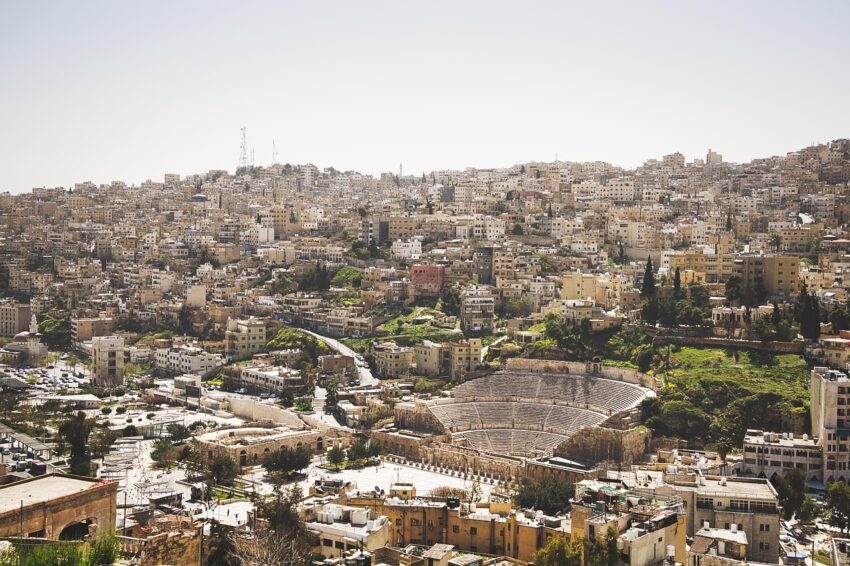Nations as Living Systems
Nations are not machines but living complex systems. When functioning well, they contain a mix of order and chaos. Neither extreme is desirable: rigid order, as under Saddam’s Iraq, is no better than uncontrolled chaos, as seen after 2003.
Few countries in the broader Middle East are functioning well. Others oscillate between rigid control and disorder. Prosperous nations achieve a state of self-organisation that balances order and chaos. This is the central task for societies in the region.
Understanding the dynamic nature of nations as living systems helps identify actions that guide them toward self-organisation.
The Limits of Leadership
Much of the Middle East has long been preoccupied with leaders and leadership. Political battles over who governs often overshadow more urgent concerns.
Key challenges include:
- Water scarcity: The Tigris and Euphrates river basins have one of the world’s fastest rates of groundwater loss. Rising sea levels also threaten the Nile delta.
- Population pressures: Large youth populations face poor employment prospects, fueling unrest.
- Migration of talent: Many professionals and graduates emigrate due to instability and a lack of opportunity.
- Corruption: Endemic corruption undermines governance and development.
These issues highlight how focusing solely on leadership misses deeper systemic problems.
The Weight of History
The Middle East is shaped by overlapping historical and political legacies:
- Borders defined by colonial powers created lasting tensions.
- The establishment of Israel remains a major source of conflict.
- External interventions, including conspiracies and coups, continue to influence regional politics.
- Global rivalries now play out in the Middle East, as the influence of the United States is challenged by Russia and China.
Islam and Political Economy
Islam is both a spiritual faith and a comprehensive philosophy encompassing political and economic aspects. Its emphasis on community, compassion, and fair distribution of wealth contrasts with the neoliberal economic models often promoted in the region.
Misunderstandings of Islam’s political role have fueled tensions. Shari’a law, for instance, is often oversimplified. Historically, leaders such as Khomeini acknowledged the need for flexibility in applying Islamic principles to modern governance.
The management of the relationship between Islam and government varies across societies. It can contribute to stability or conflict, depending on the context.
Nations as Complex Adaptive Systems
Unlike mechanistic systems, nations cannot be managed through rigid control. Instead, they function as complex adaptive systems:
- Local interactions generate stable patterns at the national level.
- A balance of order and chaos is essential.
- Predictability is limited to overall patterns rather than specific events.
To perform well, nations require:
- Capability to interact: Adequate health, education, and knowledge for all citizens.
- Ability to interact: Freedoms and opportunities within a framework of good governance.
Arab Human Development Reports have identified three critical deficits: freedom, women’s empowerment, and human capability. Addressing these aligns with the view of nations as complex adaptive systems.
Toward Radical Change
Sustainable progress requires evolutionary transformation rather than sudden upheaval. Revolutions, coups, or replacing one leader with another do not bring lasting solutions. Instead, nations need:
- Inclusive governance is built on trial, error, and learning.
- Limitations on the concentration of leadership power.
- Investment in health and education.
- Reduced reliance on external interventions.
Over time, rising education and public awareness, combined with pressures such as youth unemployment, will make existing systems unsustainable. Change will come, though it will be gradual.
Community-Based Action
Governments alone cannot deliver transformation. Civil Society Organisations (CSOs), universities, unions, and research institutes must play a central role. Coordinated efforts could build public demand for reforms such as:
- Improved literacy and education.
- Strengthened public health and social care.
- Equal rights and opportunities for all citizens.
- Greater accountability and separation of powers.
- Promotion of interfaith and interethnic cooperation.
- Respect for cultural and artistic contributions.
Creating a shared agenda among CSOs would amplify their influence without compromising their independence.
Summary
Viewing nations as complex adaptive systems reveals why command-and-control methods repeatedly fail in the Middle East. Instead, gradual reforms that build human capability, strengthen governance, and empower communities offer a more sustainable path forward.
Note:
The ideas in this article were first presented by Dr. Samir Rihani at the Second Global Conference of the Association for Middle Eastern Public Policy and Administration (AMEPPA), held in Ankara, Turkey, in November 2013. AMEPPA is an international, scholarly, non-profit association dedicated to the study of public administration and public policy in the Middle East and North Africa.

